Year Four Highlights
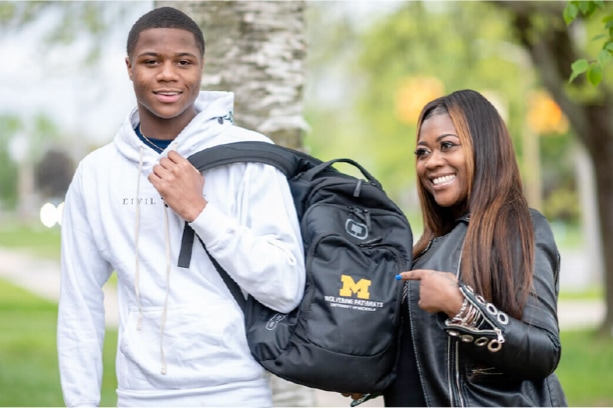
Wolverine Pathways
This college pipeline program for middle and high school students enrolled 649 scholars of whom 86 graduated in 2019–20 (its third cohort), with all 86 matriculating scholars being admitted to selective colleges nationwide. WP also conducted its first on-campus summer institute for 11th-grade scholars; hosted Remote Summer Camps for its eighth, ninth and 10th graders; and developed a near-peer mentoring program that connects WP scholars with U-M undergraduates.
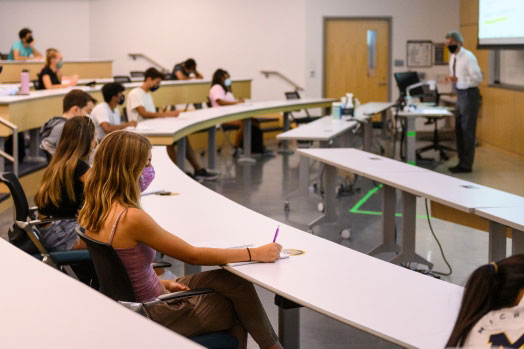
Inclusive Teaching Programs
CRLT’s Teaching Academy programs continued to serve new faculty in 10 schools and colleges. Campuswide, CRLT offered 41 faculty workshops and retreats, presented 22 DEI-focused pedagogy workshops and offered programs for instructors teaching courses that fulfill LSA’s race and ethnicity (R&E) requirement. During Fall and Winter terms, 1,370 GSIs and undergraduate instructional aides attended inclusive teaching sessions at GSI teaching orientations.
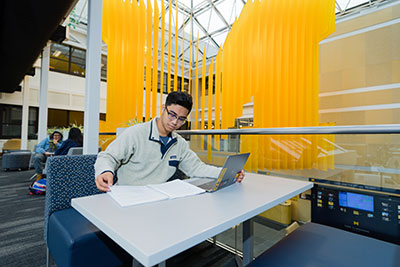
Go Blue Guarantee
Since its rollout in Winter 2018, GBG has made education on the U-M campus more affordable for families with incomes of $65,000 or less and assets below $50,000, providing financial aid packages totaling, at minimum, the cost of tuition and mandatory fees. In Fall 2019, 1,612 students received a total of $19 million in institutional and federal support for that term.
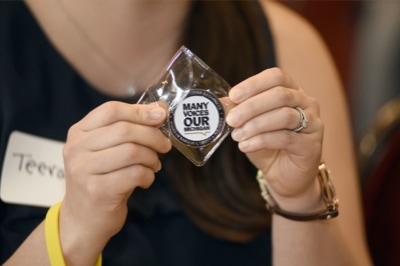
Trotter Multicultural Center
Following TMC’s reopening in April 2019, the campus community has utilized the Center in many ways. During the 2019–2020 academic year, TMC processed 1,900 room reservations, offered drop-in weekly support services and hosted 11 wide-ranging academic courses. TMC’s work has been informed by DEI Student Advisory Boards and a dynamic team of staff members dedicated to honoring the Trotter legacy and engaging the campus community.
"When I see the DEI plans on campus, I see awareness - awareness that there needs to be change."
— Chanel Barnes, Undergraduate Student
Year Four Highlights
DEI Education & Training Resources for Staff and Faculty
Organizational Learning (OL) used its new DEI Lifelong Learning Model to design educational resources for units and groups across campus. OL refocused its programs in the midst of the pandemic and social justice movement, offering the highly praised “Sheltering in Love” series and the “Anti-Racism Primer: What Can I Do.” Since the DEI strategic plan launch in October 2016 through June, 2020, Organizational Learning and Michigan Medicine have together offered 1,049 instructor-led courses serving 30,878 participants.
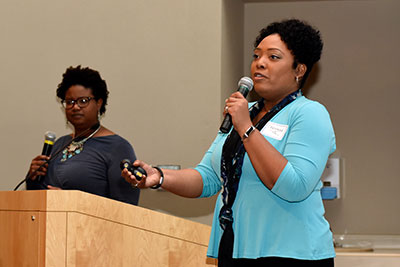
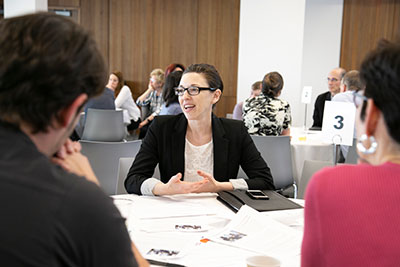
Gender-Based and Sexual Misconduct Prevention
Organizational Learning (DOL) launched “Cultivating a Culture of Respect,” a mandatory online training for faculty and staff designed to raise awareness of U-M’s commitment to creating a safe, harassment-free working and learning environment. The stated goal was 100 percent participation by December 31, 2019. As of June 30, 2020, 98 percent of faculty and staff had completed the module. In addition, the CRLT Players continued promoting a climate resistant to sexual harassment through departmental sessions and daylong workshops.
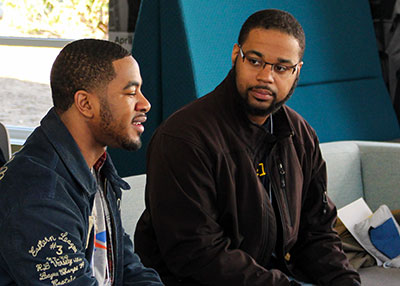
SuccessConnects
Open to all students, this holistic support program uses one-on-one professional coaching, peer mentoring and monthly workshops to connect participants to campus resources and encourage academic success. Among student participants are first-generation students, students from low socioeconomic backgrounds, and underrepresented minority students. In Year Four, 636 students registered for SuccessConnects—an 11 percent increase over the prior year—and services expanded to include nearly 760 tutoring sessions and 1,800 professional coaching sessions.
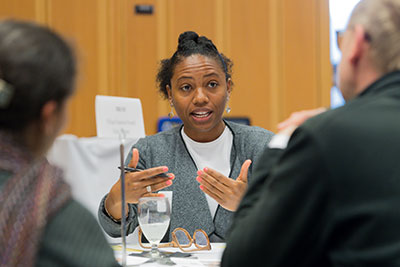
LSA Collegiate Fellows Program
Launched in 2016, this five-year initiative aims to recruit and retain 50 exceptional early-career scholars in all liberal arts fields with a sustained commitment to building an inclusive and diverse intellectual community. To date, LSA has recruited 37 Collegiate Fellows, 15 of whom are now on the tenure track. Changes made in Year Four offered departments greater flexibility in using the program to recruit faculty with demonstrated success in DEI work.
"I think DEI is a very important initiative that made me feel welcome."
— Michael Ngan, Undergraduate Student
Year Four Highlights
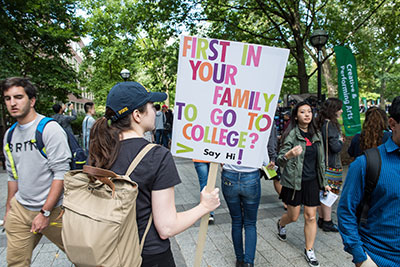
First Generation Student Support
Thanks to the Go Blue Guarantee and the HAIL Scholarship Program, U-M’s Ann Arbor campus experienced a significant increase in first-generation and low-income students. In response, student leaders organized a collaborative First-Gen Council to coordinate campuswide initiatives, and the program nearly doubled its social and professional development programs. Overall, attendance at Community Dinners increased by 40 percent and First Generation Gateway community programs drew 25 percent more participants than in the previous year.
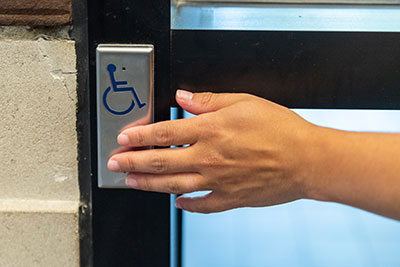
Inclusive Facilities
The Student IDEA (Inclusion, Diversity, Equity, and Accessibility) Board was formed in Year Three to assess U-M’s infrastructure in terms of its ability to support and include students impacted by barriers relating to disability, accessibility or ableism. In Year Four, the university began implementing IDEA Board recommendations by modifying building codes, creating an accessibility map for the Ann Arbor campus and leveraging technology to support time-sensitive emergency response resources for disabled individuals.
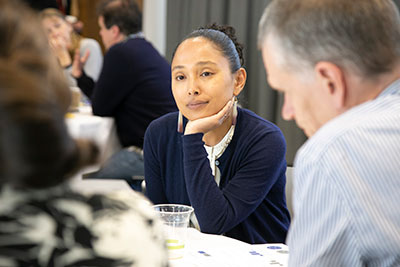
Faculty Leadership Development Fellowships
With an emphasis on cutting-edge and next-generation scholarship, this initiative seeks to recruit and support faculty across campus and beyond whose research addresses diversity, equity and inclusion (DEI) issues. In Year Four, nine high-achieving faculty were designated as University Diversity & Social Transformation Professors (UDSTPs). A second cohort of five UDSTPs were submitted to and approved by the Board of Regents in July and September 2020.
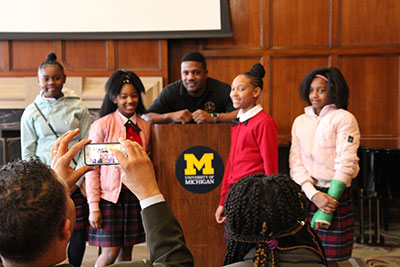
Urban School Initiative
This program aims to overcome the institutional barriers and systemic inequalities that prevent outstanding students in diverse and underserved communities from applying to and attending the U-M. During Fall 2019, outreach efforts yielded a nearly 70 percent application rate among interested prospective students, with 63 students applying and 36 admitted as first-year undergraduates. The 11 who matriculated are projected to enroll in at least four of U-M’s seven freshman admitting units.